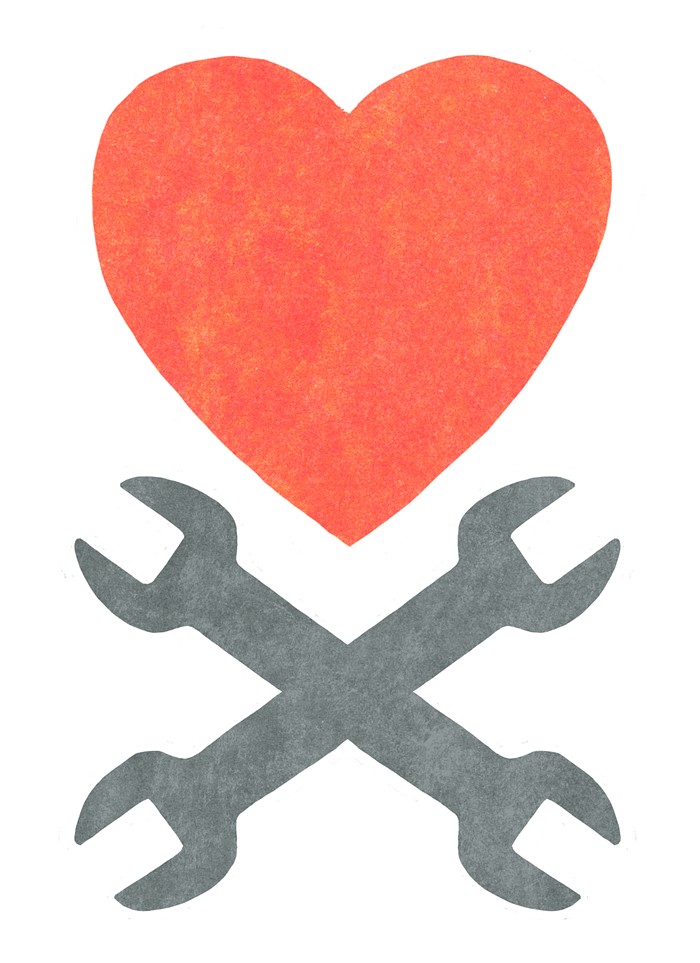
I'm a few days late to this but John Oliver, the host of Last Week Tonight, took on a subject near and dear to my personal heart on his show Sunday evening: public shaming. (Scroll to the end of this post to see the video.)
Public shaming is an old form of punishment—The Scarlet Letter was about public humiliation, and in early American colonies, people were regularly punished for transgressions by being put in stocks in the town square—but, as you probably know, it's gone digital. Thanks to social media, anyone who makes a mistake, misstep, or who genuinely fucks up can (and often will) be inundated with waves of criticism every time they look at their phones. Sometimes it's even deserved.
Oliver, for instance, cites Tucker Carlson, whose 11-year-old offensive statements about Iraqis, as well as women, on the shock jock radio show Bubba the Love Sponge were recently unearthed by liberal media watchdog Media Matters (where staffers apparently listened to over 100 hours of Carlson on tape). Within hours of Media Matters breaking this 11-year-old story, #BoycottTucker and #FireTucker were trending on Twitter.
Had this happened to a liberal media figure, I imagine an apology, if not firing and/or resignation, would have been immediately forthcoming, but Carlson wasn't just unapologetic. He immediately aired a segment on his show about anti-Semitic and transphobic jokes written by Media Matters president Angelo Carusone on a blog he kept in the early 2000s. The subsequent shaming of Carusone, most of which came from the right, seems to have had little impact on his career. After Carusone explained on CNN that the blog posts were jokes, the story basically died, and the same is true of Carlson as well. He wasn't fired, he wasn't suspended, and few advertisers ultimately dropped him. (One might assume that the advertisers of Fox News know exactly what they are getting.)
Carlson’s public shaming may have made the public shamers feel good—it's fun to join a pile-on, after all—but in terms of accomplishing anything, the whole episode did approximately nothing. That, frequently, is how these things go, especially when the criticism comes from people who are already opposed to the person being shamed for some previous thing they did. Shaming really stings when it comes from your own side; when it comes from your enemies, the hurt (and the result) tends not to stick.
Still, Oliver argues that "when it's well-directed, a lot of good can come out of [public shaming]. If someone is caught doing something racist or a powerful person is behaving badly, it can increase accountability."
I agree with this, at least in theory. The threat of public shame is a powerful motivator to keep anti-social, non-normative behavior at a minimum. I've done it plenty myself, like when people send me especially vile emails, which I like to post on Twitter. I black out their email adresses but not always their names and the point of this exercise is to teach them a lesson (namely, don't send emails you wouldn't want posted on Twitter). It's generally the last time I hear from them.
But it's also true that stories that circulate on social media, or even in the news, are often based more on rumor, miscommunication, and bad-faith interpretations of human behavior than on fact.
Take, for example, an incident in Portland last fall, when a white woman dubbed "Crosswalk Cathy" was publicly shamed for allegedly calling the police on a black couple who parked their car in a crosswalk. Local media reported that the woman was likely motivated by racism, but it turned out that she (A) called parking enforcement, not the police, and (B) had no idea who was parked in the crosswalk, much less the car-owner's race. What looked, at first, like a racist incident could just as easily be seen as a responsible neighbor trying to make the streets safer for pedestrians, cyclists, and people in wheelchairs. But by the time more facts emerged, it was too late. Once the outrage machine warms up, it's nearly impossible to stop.
Oliver says that before he decides to public shame someone on his show, certain criteria must be met. The person, for instance, must be a public figure or someone with power. Both, I think, are good places to start, but I'm still not convinced that public shaming usually does more good than it does create damage. When one is publicly shamed, the end result is frequently internalizing that humiliation. People become anxious, depressed, and, on rare ocassions, even kill themselves. And it's not that hard to see why someone would choose such a drastic step: shame can quickly lead to shunning, which in some cultures is the gravest form of punishment.
There's valid reason that some anti-social behavior is stigmatized, but there's also a reason we don't put people in the stocks anymore. As Jon Ronson wrote in the fascinating—and prescient—book So You've Been Publicly Shamed, punishments based in public humiliation "didn't fizzle out because they were ineffective. They were stopped because they were far too brutal." And yet, for public shaming to make a dent in someone's behavior, the one being shamed needs to actually care about his critics' opinions. And by all appearances, Tucker Carlson doesn't give a shit what Media Matters or liberals on Twitter think about him. It's not his audience. Shame, I suspect, only works when it's coming from inside the building.



















